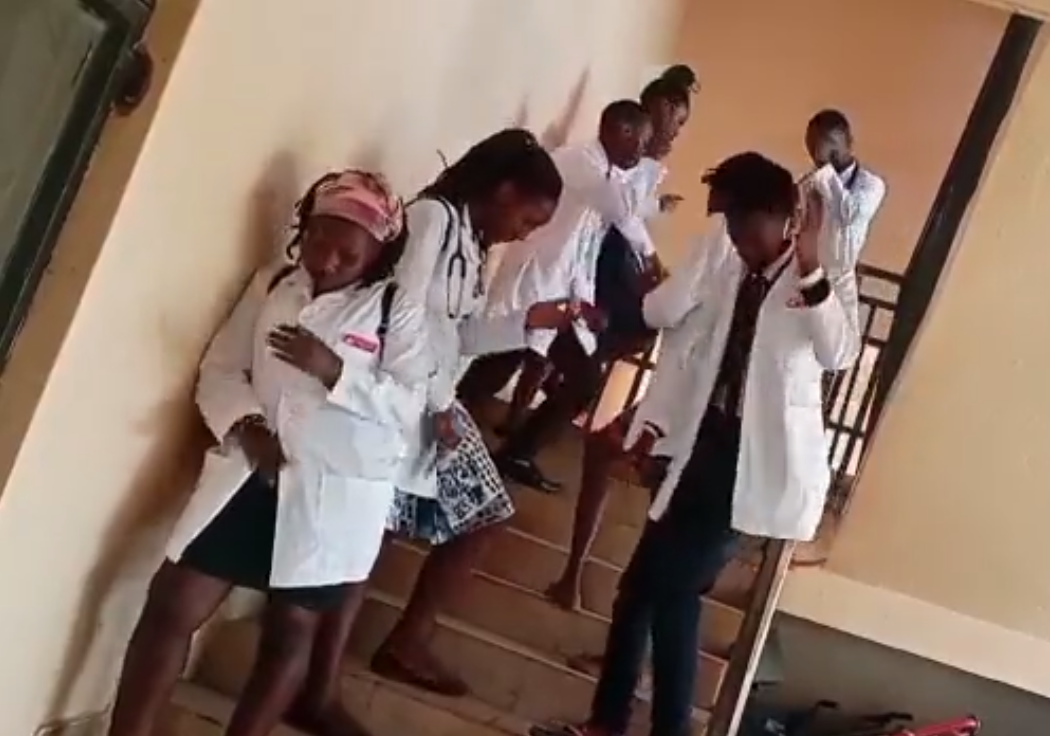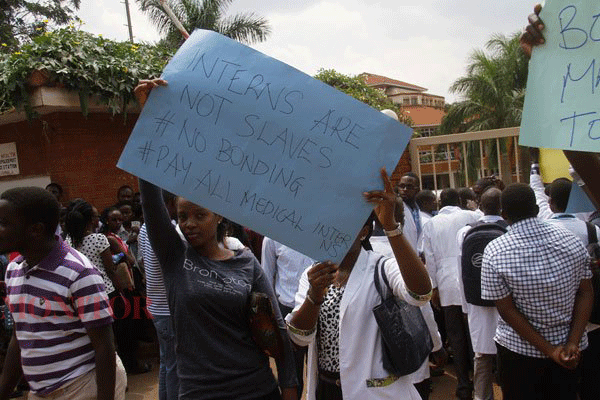Prime
Medical interns are the backbone of Uganda’s public hospitals

This screengrab from a video circulated on social media on December 12 shows some intern doctors who have vowed to maintain their strike until their concerns are addressed. PHOTO/COURTESY
What you need to know:
- Issues of medical interns are neither a political debate nor an English-speaking contest!
By my fifth year of medicine, I had decided that I would not proceed to do internship or even practice medicine, because the struggles of most of the doctors I was supposed to aspire to be like were easily noticeable from their clothes, means of transport, and housing, but most significantly from their shoes!
I passively applied for internship, and I was posted to Mulago Hospital, my first rotation was paediatrics. I never intended to report but decided to go walk through the ward 16C “just to see what’s up”. Little did I know that the previous lot were waiting for the new lot at the door to handover.
I probably looked a lot like a fresh graduate more than I thought, the outgoing intern held me by the hand from the entrance and presented me to the sister In-charge as the new guy and started briefing me about the 20+ children on the ward. Before he could run off, the SHO on duty entered the unit for a ward round and asked the outgoing intern to walk with us through the round for a proper hand over.
By the end of the round, I had three femoral taps, two lumbar punctures, and 1 NG tube all of which I had only witnessed before. How I managed is not the matter though:
I didn’t know that on top of taking notes of all the ward proceedings It was me to get all forms of samples for the requested tests from the 20 plus’s patients, write the lab requests, physically walk across Mulago hospital to deliver the samples to the lab, and beg the lab to release the results.
I didn’t know that I was supposed to call the blood bank in Mulago and Nakasero using my little airtime to beg for blood for my patients on ward.
I didn’t know that when blood came through the hospital would lack blood giving sets, I didn’t know that my patient would fail to raise Shs3,000 to buy the blood giving set, that I would part with my transport back to Gayaza to sort the issue.
I didn’t know that the nurses were too tired to execute all doctors’ instructions, that I would end up placing cannulas on some of the patients and run the required fluids as recommended.
I didn’t know that one of the children would deteriorate with only clueless me on the unit, that I had to execute instructions on the phone while the SHO came back to the ward.
I didn’t know that one patient would consume four hours of our day with the SHO trying to stabilize.
I didn’t know that one of the parents would run away and abandon the baby at the ward for my colleague and I to co-parent for the day. In a flash, the clock had moved from 8am to 9pm, no rest, no lunch, no idea how I was to go back to Gayaza. That night, I shared a room (read store) at the intern’s mess on the floor above the New Mulago hospital complex, with a colleague in the same rotation. While I was angry at the deficiencies in the system, I had some level of satisfaction that I had sorted out most of the issues and the patients were okay. I took a shower, washed my undies high school style, walked to Wandegeya for Rolex in the same clothes and slept off later.
The next day in the same clothes we stormed the ward at about 7am. Haaaa…. in spite of the hustle the previous day, we were in trouble! The supervisor came in earlier and went straight to the patient who had deteriorated the previous day and we had not scribbled all the notes of what transpired. Everything we claimed to have done was not on file, that aside, there was a patient we never reviewed in the evening because we were exhausted and thought the child was stable.
The patient deteriorated in the night! Day two was twice as busy and twice as hard, day three and all the days after it never got any better, I had to send someone to get me clothes from home because there was never time to go home by day three. A man who never intended to show up for internship only went back home after seven days. This is nothing compared to our two weeks at the Acute Care Unit!
Issues of medical interns are neither a political debate nor an English-speaking contest!
Dr. Peter Ntege, MBchB, MPH



